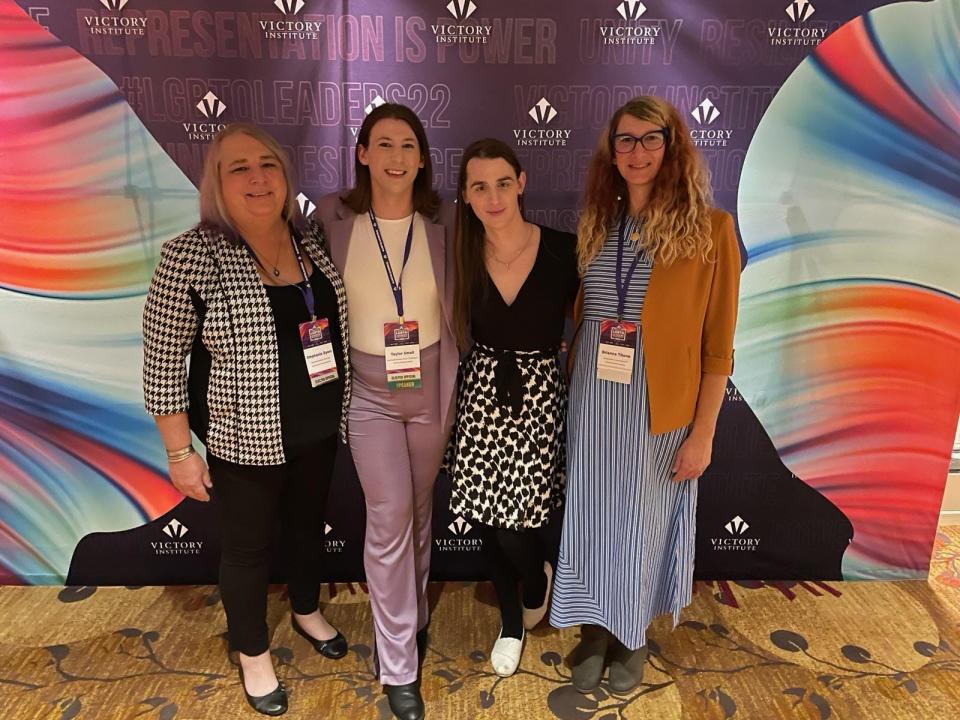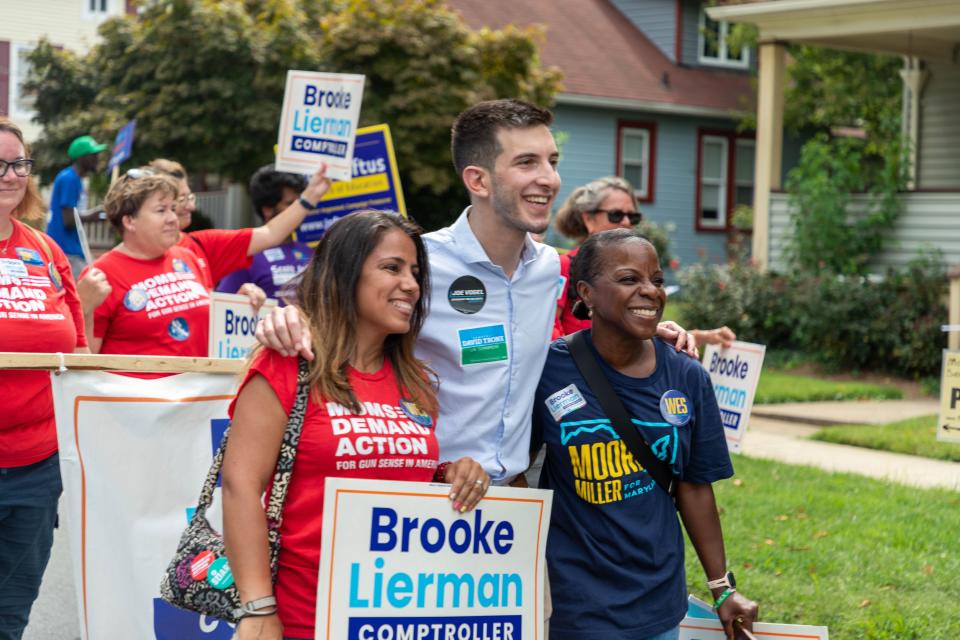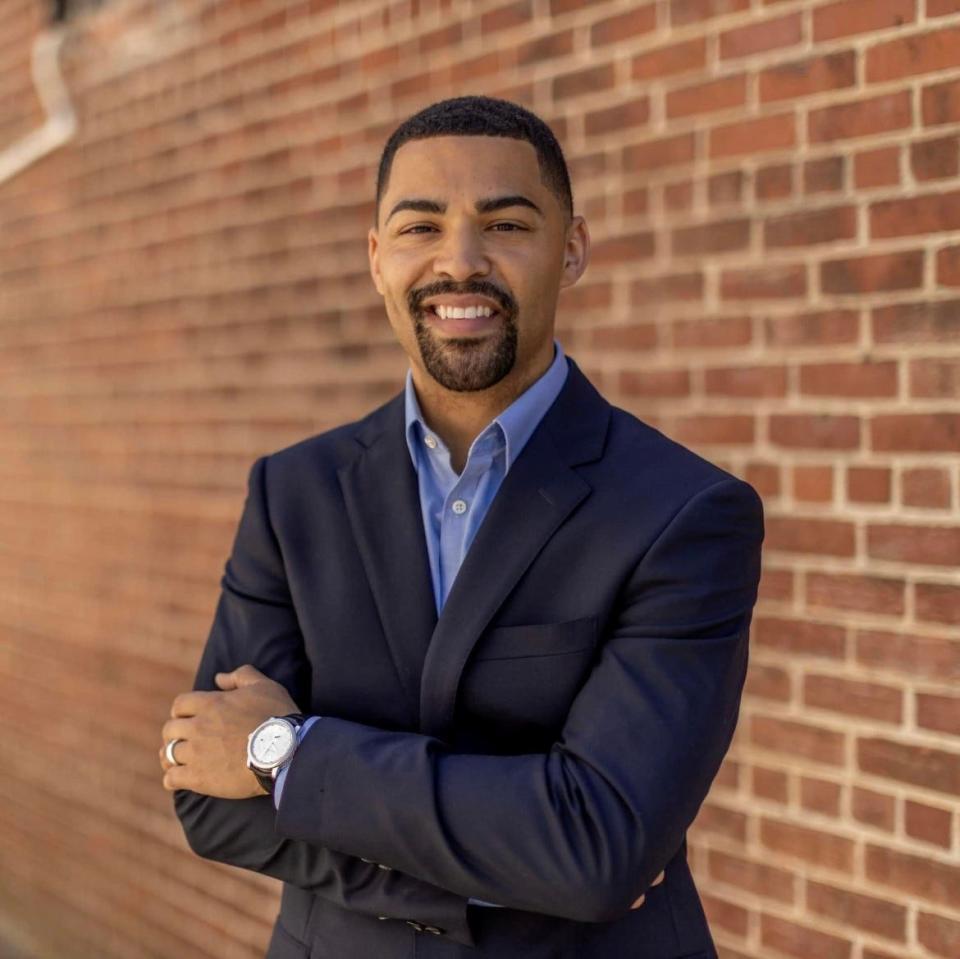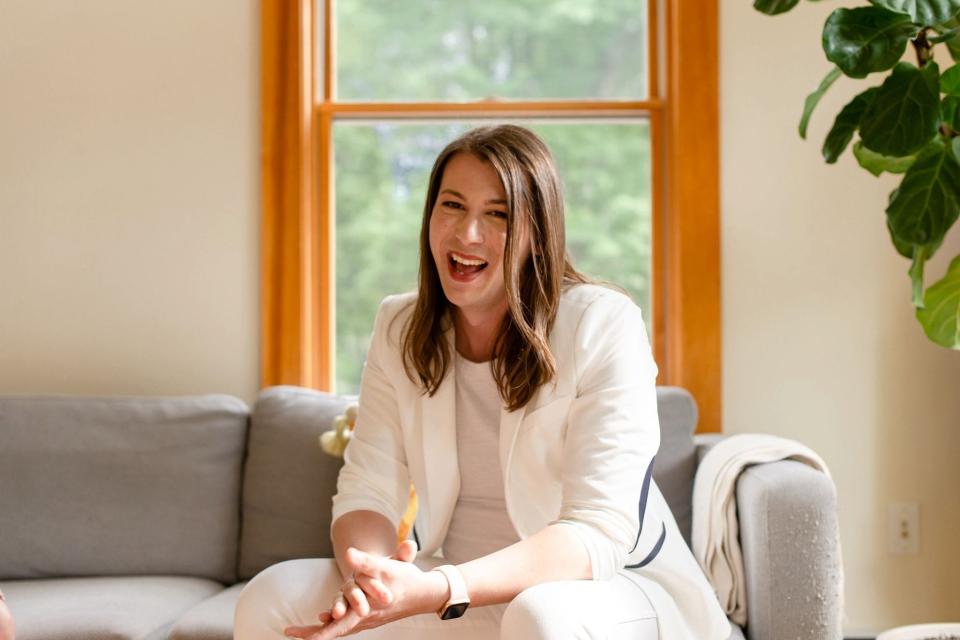More than just 'firsts,' LGBTQ elected officials carve space for a future generation of politicians
Earlier this year, after receiving the One Young World Politician of the Year Award and wrapping up her first term as Vermont's first openly transgender legislator, Taylor Small met a transgender girl from her state who gained international public attention for using a school locker room that matched her gender identity.
In awe of her bravery, Small asked the girl what more she could do as an elected official to better serve students like her.
"(The girl) said: 'You are doing everything and more than I need from you," Small told USA TODAY. "And I said, I don't feel like that, and she said, 'No, you are giving me the strength to be able to see that this is going to pass, that this is a storm that I will get through but there's more in my future' ... that gives me everything I need and more to continue on.'"
Small is one of more than 400 openly LGBTQ candidates who won races for elected office across the country in November, surpassing a previous record of 336 set in 2020, according to the LGBTQ Victory Fund, a political action committee dedicated to electing LGBTQ candidates. Small was elected for a second term in the Vermont legislature this year.
Among those wins were a flurry of historic "firsts," including the first openly lesbian governors in Tina Kotek of Oregon and Maura Healey of Massachusetts; James Roesener of New Hampshire, the first trans man elected to a state legislature; and Erick Russell, Connecticut's state treasurer-elect and the first Black openly LGBTQ person elected to statewide office.
Amid this "rainbow wave," some of those about to enter office spoke with USA TODAY about the importance of diverse representation in local government, the challenges of being a "first" in new spaces, and how they are setting examples for LGBTQ youth what's possible for their futures.
'No ceiling you can't break': The LGBTQ midterm 2022 candidates who had historic wins

The importance of LGBTQ representation in local government
With the number of Americans who identify as LGBTQ growing – a record 7.1%, and double the number from 2012, according to a Gallup poll – openly LGBTQ elected officials see a pressing need for legislators and state officials whose identities reflect that change.
Joe Vogel, a 25-year-old, newly elected member of the Maryland House of Representatives, told USA TODAY that during his campaign, he found his lived experience as a Gen Z gay immigrant allowed him to understand issues affecting those communities.
Local progress: More cities are excelling at policies on LGBTQ equality even amid hostile legislation, report finds

While choosing to run as an openly LGBTQ candidate could have jeopardized his campaign, Vogel saw the benefits of being authentic to himself and to his constituents.
"I said, I'm going to run as my full authentic self because I don't think that's going to be a liability to my candidacy," he told USA TODAY. "I think it'll inspire a lot of other young LGBTQ people to see themselves in government and feel more affirmed about who they are.'"
The number of LGBTQ elected officials increased by 5.8% between 2020 and 2021, but the U.S. would need to elect 35,854 more to achieve equitable representation, according to the LGBTQ Victory Institute. After the 2022 elections, Mississippi is the only state yet to elect an out LGBTQ representative to the state legislature.
Russell also has seen firsthand the impact of representation, with young people telling him of the importance of seeing someone who looks like them in local government.
"Throughout this campaign, there's been a number of folks who have come up to me and said, 'It's really meaningful that you put yourself out there and that you are representing us or you're representing me,'" Russell said.

Victory Fund Report: Number of LGBTQ school board candidates has grown in 2022 amid controversial bills, report shows
The challenges and value of being a 'first'
Small, who began her first term in 2021 remotely, found how isolating being a 'first' LGBTQ legislator could feel.
"It is really challenging when you're the first. You're also alone and nobody else is able to understand fully the experience of what it means to be the only trans representative in Vermont," she said. "I worried about not being seen as a true leader or not being seen past my trans identity,"

But during her first term in Vermont, Small was able to gain support from her colleagues and pass legislation banning the LGBTQ "panic defense" in the state and worked to pass a bill easing the process for birth certificate changes, including adding an "X" gender option for gender for nonbinary and gender non-conforming people.
She found none of her colleagues were intentionally transphobic or discriminatory because of her identity and was validated by having so many colleagues join her in supporting the LGBTQ community.
Zooey Zephyr, the first out trans woman elected to the Montana legislature, told USA TODAY it was important in her campaign to focus on her firsthand perspective beyond her gender identity.
"It's important to understand my role is to bring my firsthand experience," she said. "What does it mean that I'm a union worker? What does it mean that I'm a renter when we discuss housing rights ... and then obviously, my transness as well and figuring out how to bring those experiences to help paint a fuller picture of the issues."
Russell feels humbled by his status as a first but said it's important to underscore those breaking representation barriers were able to do so because of their qualifications and perspectives, above all else.
"The most important thing is people understanding that these 'firsts' aren't in these spaces because they're first," he said. "They're in these places because of who they are in their intellect and what they're bringing to the table. And in some ways, being the first, these are things that made it harder for them to get to that place."
This article originally appeared on USA TODAY: Rainbow wave LGBTQ politicians reflect on being 'firsts'

